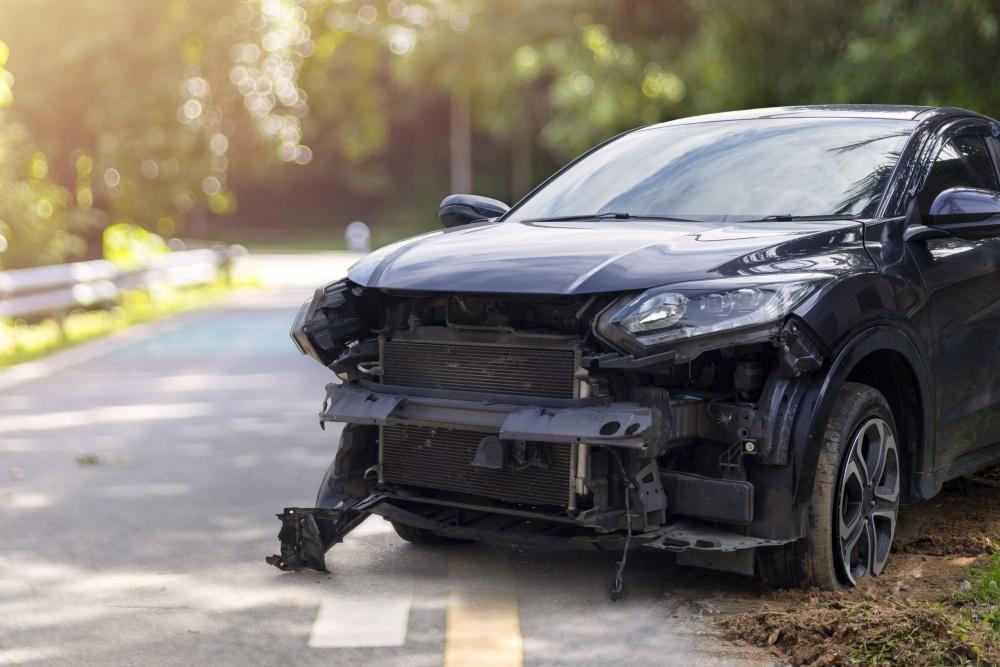
What Does Total Loss Mean?
When something is deemed a total loss it means the paying party has decided not to repair the vehicle. Typically, a vehicle is declared a total loss when the cost of the auto body shop repairs would exceed the actual value of the vehicle. States and insurers vary with their determining factor but usually if the repair will cost 70% or more than the vehicle’s value it would be considered a total loss. There are other situations when the repair cost isn’t exceeded by the value of the vehicle but it is still determined to be a total loss. One situation could be that parts are no longer available or there is structural damage that cannot be repaired properly.
Who Decides If My Vehicle Is Totaled?
The paying party is the decision-maker and generally, the paying party is an insurance company. Typically, an insurance adjuster or an estimator at a body shop will assess the severity of the damage, create a repair estimate, and submit the damage report to the insurance claims department. Within the claims department, there is a special team that reviews and determines vehicles to be a total loss.
How Will I Know If My Car Totals Out and It’s Value?
The claims department relies on the inspector to provide details on the vehicle damage as well as the overall condition. The collision repair shop or claims adjuster must take their time to identify the full extent of damages. Sometimes this includes technicians disassembling the vehicle to see how bad and how far the damage goes. Next, the estimator must do a thorough inspection of the car’s condition. This information helps to determine the value of the car. Things that are assessed include mileage, wear and tear of the vehicle, how much the tires have worn, if there are dents on the vehicle, if there are other areas of damage outside of the claim area, if there are chips or cracks in the windshield, if the interior is clean, and anything else that can help determine the vehicle’s value. The condition of the previously mentioned items is important because if the undamaged items can be sold and reused in another vehicle it will increase the value of the vehicle.
Am I Covered for a Total Loss?
You should have property damage liability (PD) or comprehensive or collision insurance on your policy. PD is required in every state. If another party is at fault you can file a claim against them. If there is a question of who is at fault or a question of the responsible parties coverage, the easiest way of receiving payment for a total loss claim is by opening a claim under your own insurance policy.
What Should I Do if My Car Totals?
Always be sure to ask the insurance company and body shop what they advise. General guidelines would be to remove all personal items and license plates from your vehicle and take them with you. Don’t forget your sunglasses and garage door opener! Leave your keys with the insurance adjuster or collision repair shop and give them extras if you have them. Make sure all paperwork is filled out. If another party was at fault, make sure your insurance company knows and transfer the insurance coverage to the replacement vehicle. Always make sure you discuss with the insurance company any recent maintenance or investments made into the vehicle.
Can I Keep or Buy a Car That Was a Total Loss?
Yes. Every situation is unique so sometimes retaining a total loss would not be advisable and other times it would be a great opportunity. If the vehicle is safe to drive and the structure is unharmed it would be fine to keep the total loss. You still need to research how to get the car insured after it was deemed a total loss and make sure the local government deems it safe and legal to be on the road. After a car is deemed a total loss it may have a salvage title. Be sure to take the proper channels to keep or purchase a salvage of a previously totaled vehicle. If you keep a totaled vehicle the paying party will pay along the lines of the cash value less the deductible and the amount the vehicle would have been sold to a salvage yard for. After settling, you are responsible for getting the vehicle put back together if necessary then moved if it isn’t already in your possession. You are financially responsible for any charges associated with those actions. If a car is damaged structurally and cannot be properly repaired to a safe condition the vehicle should not be retained. Always consult with a reputable body shop and insurance representative before making a decision. You want to make sure you know the extent of damages you will be getting into before making a final decision.

